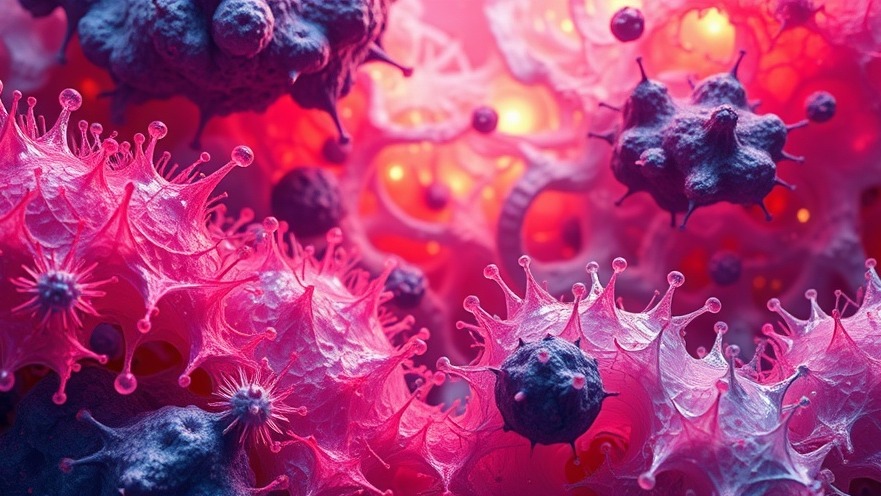
Revolutionizing Cancer Immunotherapy with Biomimetic Innovations
The recent advancements in biomimetic materials open new avenues in cancer immunotherapy, particularly in enhancing the effectiveness of CAR T-cell therapies. Researchers from the Institute of Materials Science of Barcelona (ICMAB-CSIC) have developed novel hydrogels inspired by biological lymph nodes, which significantly optimize the proliferation and activation of CAR T cells—an exciting development for health practitioners aiming to provide cutting-edge treatments for their patients.
Understanding CAR T Cells and Their Significance
Chimeric antigen receptor (CAR) T cells are a type of immunotherapy that involves modifying a patient's own immune cells to better recognize and attack cancer cells. This personalized method of treatment has been particularly effective for certain blood cancers, including leukemia and lymphoma. However, the production process of CAR T cells can be resource-intensive and complex. The novel hydrogels developed by ICMAB aim to streamline this process, decreasing production costs and improving cell quantity and functionality.
How Biomimetic Hydrogels Enhance T Cell Activation
The hydrogels designed by the researchers replicate the natural microenvironment of lymph nodes where T cells undergo activation and proliferation. Featuring interconnected pores and tissue-like stiffness, these materials provide essential biochemical signals and physical structures that are crucial for T cell performance. In laboratory tests, these innovations have shown a 50% increase in CAR expression and doubled the T cell replication index compared to conventional culture methods, highlighting their potential to revolutionize CAR T cell manufacturing.
Current Applications and Future Impact on Cancer Treatments
The impact of these hydrogels is significant, as they not only increase the efficiency of CAR T cell production but also decrease the logistical and economic burdens typically associated with traditional therapies. This innovation aligns with a broader trend in cancer treatment evolution towards more personalized and effective solutions. As practitioners, recognizing the potential of these advancements keeps us ahead in providing the best care options for our patients.
Practical Benefits for Health Practitioners
For health practitioners, staying informed about these developments is crucial. As new technologies emerge, the ability to deliver more effective treatment options—like those improved through biomimetic materials—can significantly enhance patient outcomes. Embracing such innovations not only enriches practice capabilities but also boosts patient trust and engagement as they witness their healthcare providers utilizing the latest advancements.
Steps to Implement New Therapies in Practice
Practitioners interested in adopting CAR T cell therapy-enhancing technologies should consider several key steps: establish partnerships with research institutions, stay updated on regulatory changes regarding new treatment materials, and attend workshops or conferences focused on immunotherapy innovations. Nevertheless, collaboration with biomedical engineers and scientists can provide insightful perspectives on integrating these groundbreaking materials into practice.
Common Misconceptions About CAR T Cell Therapy
One prevalent misconception is that CAR T therapy is a one-size-fits-all approach. In reality, each treatment is tailored to the individual patient, and enhancements through new technologies, such as biomimetic hydrogels, only improve this personalization aspect. Understanding the importance of individualized patient care is vital for practitioners advocating for cancer patients seeking progress in their treatment options.
In conclusion, as health practitioners, staying informed about technologies that enhance CAR T cell immunotherapy through biomimetic materials could markedly improve patient treatment effectiveness and satisfaction. For those seeking to advance their practice and provide cutting-edge care, understanding and utilizing these innovations is essential to evolving patient care in oncology.
Stay ahead in your practice and explore how these advancements can be integrated into your cancer treatment strategies.
 Add Row
Add Row  Add
Add 




Write A Comment